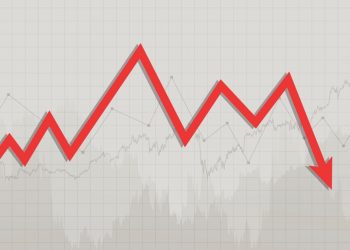(MCT) Get ready. The first droplet of a demographic flood just landed.
When retired schoolteacher Kathleen Casey-Kirschling applied for Social Security benefits last week in Maryland, she rode the first wave in what’s been called the “silver tsunami”-the nearly 80 million retiring baby boomers born between 1946 and 1964, who are beginning to draw pension, Social Security and Medicare benefits, putting an overwhelming strain on federal budgets.
Some economists have called confronting an estimated $50 trillion in future benefit obligations, the greatest economic challenge of our time. But the challenges posed by this flood of retirees won’t be limited to fiscal headaches, severe as those might be.
Baby boomers make up about 30 % of America’s population, with 37 % of them living in suburbs. Likened by demographers to a pig in a python-a huge, hard-to-digest lump slowly making its way through the nation’s tract-they’ve had a disproportionate effect in reshaping social, political and cultural trends across the country at every stage of their collective life cycle.
The broad impact of Baby Boomers as they age can’t be underestimated. They have been a vociferous, often self-involved group, made more cohesive by formative experiences shared as never before through television, movies and music. They went through the stages of radical politics and the sexual revolution in the late 1960s and early 1970s, then became obsessed with “parenting”-a term they adopted-then were equally obsessed with real estate and property values, and later still the stock market, which they helped fuel through investments more broadly spread among Americans than ever before.
As they age, baby boomers are likely once again to leave a large footprint. They may change the way aging is perceived. As it is, they are healthier and likely to live much longer than previous generations, which could have both positive and negative effects, socially and fiscally.
Judging by recent surveys, a good number of baby boomers will re-enter the work force after they retire, applying skills to part-time employment because they want to remain active or because their pensions won’t allow them to live comfortably enough.
But the most worrisome impact is expected to be on Medicare, the health program for those 65 and older, and to a much lesser degree on Social Security.
Both programs are facing enormous financial pressures. By 2030, the ranks of those receiving Social Security, swelled by baby boomers, will be 84 million people, up from 50 million today. Medicare beneficiaries will swell from 44 million to 79 million. By that time, there will be fewer than two workers contributing payroll taxes to support every retiree-an unsustainable trend.
In a speech he gave in April, former Federal Reserve Chairman Alan Greenspan lamented there is a lack of political will to tackle the two programs’ problem. But he, as other economists agree, pointed out that Social Security’s shortfalls could be fixed relatively easily by minor adjustments, such as a modest raise in the age of eligibility for full benefits.
Individually, younger boomers will also confront painful financial problems as they retire. Not enough of them have saved enough for a secure retirement. In a recent survey, only 25% of Boomers consider themselves financially well prepared for retirement. The dour reality is that many approach their 60s with less savings, flimsier pensions from their jobs and a far shakier government safety net than their predecessors.
But one thing is sure about Boomers. They won’t be quiet about their plight – especially if political pressure can be applied to resolve major entitlement issues, like Social Security and Medicare. Count on them to be just as vocal and as politically committed as they have been through their youth and early adulthood. Still, they should remember the words of their generation’s troubador:
“You can’t always get what you want, “But if you try sometimes, well you just might find “You get what you need.”
BOOM BOX
Some current national trends for baby boomers (born between 1946 and 1964):
Total population: nearly 80 million
Median age: 50; 46 % are still in their 40s
First wave turns 62 next year: 3.2 million – 365 an hour
Of those, 49 % of men and 53 % of women plan to choose early, reduced Social Security payments
37 % live in suburbs; 24 % in cities; 40 % in small towns or rural areas
78 % own a home, and the typical boomer has owned a home for 15 years
25 % live alone; 61 % live in two-person households
Median net worth: $149,500, including home equity
10 % are self-employed
33 % plan to go back and forth between periods of work and leisure after retirement
25 % report they are well prepared for retirement; 75 % say they are not.
Sources: Social Security Administration; National Association of Realtors survey
___
© 2007, Newsday, Melville, N.Y.









